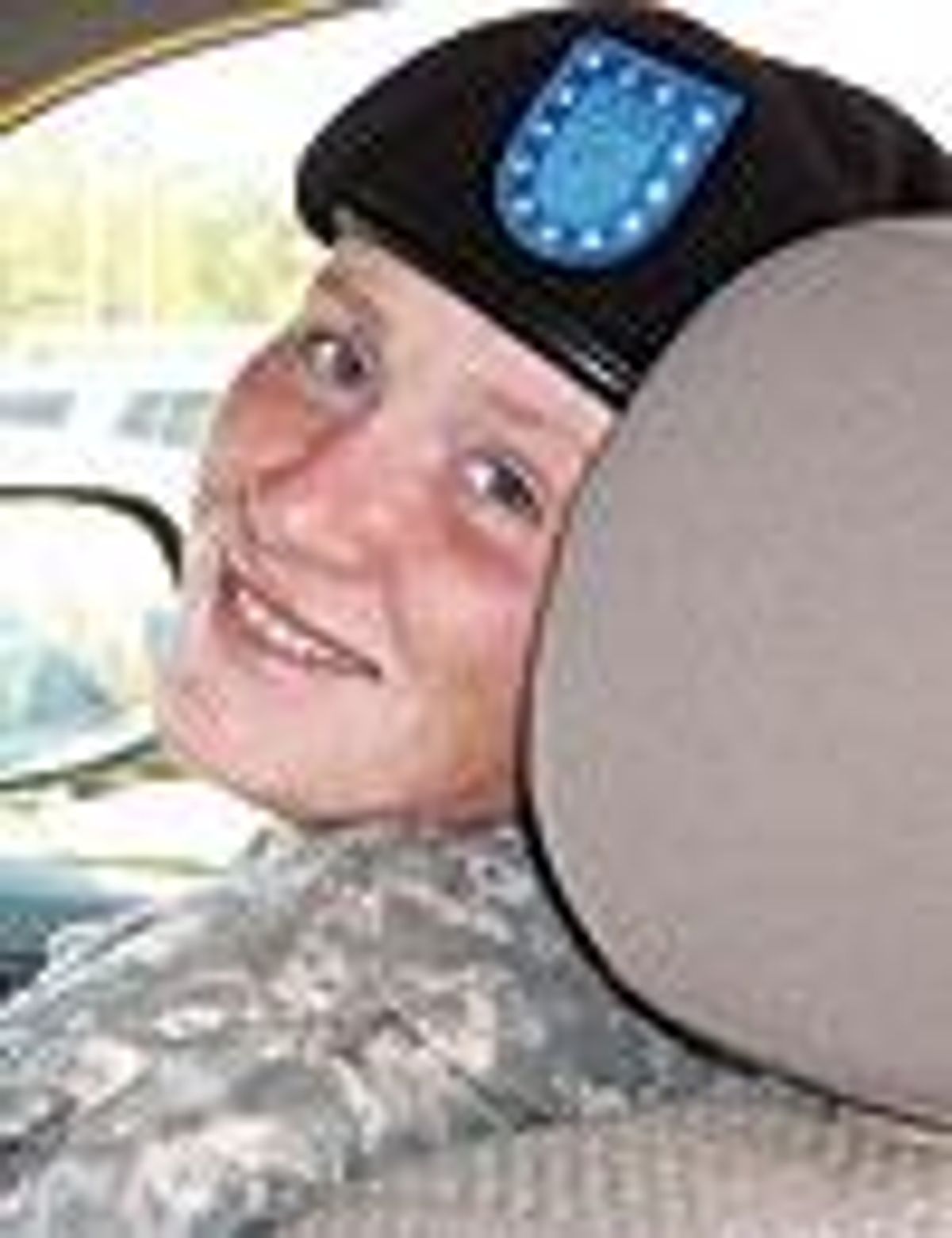On Friday,
September 28, Army specialist Ciara Durkin, a 30-year-old
corporal in the Massachusetts National Guard, was found dead
with a single gunshot wound to her head at the Bagram
Airfield military base in Afghanistan. Four days
later, she was outed by her family as a lesbian -- the
first casualty of the conflicts in Afghanistan and Iraq to
be posthumously identified as lesbian or gay. If any
of the other some 4,000 U.S. soldiers killed in either
conflict thus far have been gay, their families
haven't said. But given the mysterious circumstances
of Durkin's demise, her family felt compelled
to go public.
"Ciara was
a lesbian and that's bound to come out," her
sister, Fiona Canavan, said October 2 in a statement
to media outlets in Boston, near the Durkin
family's adopted hometown of Quincy. "It is
possible that someone over there found that out, and
maybe they were very homophobic." She added
that Durkin, who had been home on leave from Afghanistan
just weeks before her death, had told her and her
other siblings -- Ciara was the eighth of nine
children in her Irish family -- that "she had
concerns about things she was seeing when she was over
there. She told us if anything happened to her, that
we were to investigate it."
But the decision
to disclose Durkin's sexual orientation was not
easy--and perhaps illustrates why other families
have not been as forthcoming. Durkin's family
was concerned about her survivor benefits. According to
Servicemembers Legal Defense Network, "don't
ask, don't tell" ends at death; gay and
lesbian casualties receive the same financial
considerations as heterosexual casualties. Even so, the
family decided to hold off on outing Durkin until
after they had met with a military liaison. Relatives
went so far as to ask the two LGBT newspapers in
Boston not to run stories mentioning her sexual orientation,
which was widely known in the local gay community,
mostly because her gay brother, Pierce, is clerk of
the Boston pride committee.
Yet almost as
soon as the family opened the closet door with their
comments to the media, they seemed to swing it closed again.
At Durkin's October 6 funeral in Quincy, which
was attended by Massachusetts governor Deval Patrick
and Sen. John Kerry, nothing was said about her sexual
orientation, and her fiancee, Haidee Loreto, was
identified in the program as her "best
friend."
The family
declined interview requests to explain why. "We
reached a consensus as a family--Haidee included
-- to not have any further interviews with the
media," Pierce wrote in an e-mail to The
Advocate. "We need more time to grieve and
process everything that's going on." Loreto
has not spoken publicly at all about the woman who was
to be her wife.
Meanwhile, the
investigation into Durkin's death remains ongoing,
according to the Department of Defense. Among the questions
yet to be answered: Was a gun found near her body,
suggesting that she killed herself? Was she indeed
targeted for being gay? Although Durkin's family
made her sexual orientation known to help the Army's
inquiry, that fact may actually hamper it, since any
gay soldiers with useful information may be less
likely to come forward because of "don't ask,
don't tell."
"When
sexual orientation plays a role in a military investigation,
young gay and lesbian service members are often
reluctant to talk with investigators out of fear that
they themselves will be investigated," says
SLDN spokesman Steve Ralls. "Sexual orientation
always adds an additional barrier to an
investigator's work to get information."
Two autopsies
were performed on Durkin's body, one by the military
and one at the behest of her family, but no results
have been released yet. Following the second one, on
October 7, Durkin's body was cremated. A
portion of her ashes will remain in Quincy, while another
portion was flown to her birthplace of County Galway,
Ireland--her family emigrated when she was 9
years old. A third portion will eventually be interred,
with full military honors, at Arlington National Cemetery.
Despite their
mixed messages, SLDN's Ralls is full of praise for
the Durkins. "They have made sure that the
public understands that there are proud lesbian and
gay Americans who are serving and dying in Iraq and
Afghanistan," he says. "They have made sure
that Ciara will be remembered as a gay American who
proudly served her country."
If that's
any consolation to the family, no one knows. Subsequent to
her funeral, their only comment has been a simple
statement posted at a Web site they created in her
name. "We hope the results of the investigation
will give us answers and therefore some closure," it
reads. "We owe it to Ciara to see this through
with dignity."


















































































